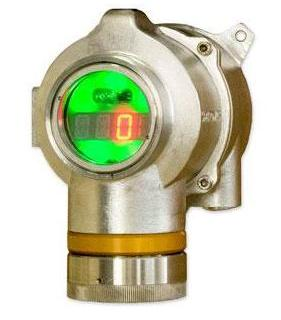The MultiTox DG7 Series from Teledyne is a range of smart gas detectors that uses many different types of sensors.
- The DG-TT7-S is a solid-state metal oxide semiconductor
- The DGI-TT7-E is utilized for monitoring oxygen and toxic gases
- The DG-TX7 uses two OXYCOL catalytic sensors
All DGi-TT7 gas detectors have been made from a standard housing and electronics with the detection characteristics being ascertained by the type of sensor (cartridge) used.
Many different cells are available that are intrinsically safe and protected. The cells can be substituted with the powered detector, which reduces the system downtime.
The smart, microprocessor-driven unit can be fully configured using a portable, wireless terminal (TLU) or by utilizing the hard-wired HART option that provides excellent flexibility to the installer and decreases the service costs.
Elements like alarm levels and relay operation are all set through the hazardous area-approved portable unit—TLU.
The TLU unit can be directly interfaced with a broad range of controllers, panels, computers, etc. Its primary daylight readable alphanumeric display denotes alarm level and local status. Moreover, the device has been developed to allow ease of operation and maintenance.
Applications
- Chemical plants
- Refineries
- Storage and processing plants
- Offshore drilling and production platforms
